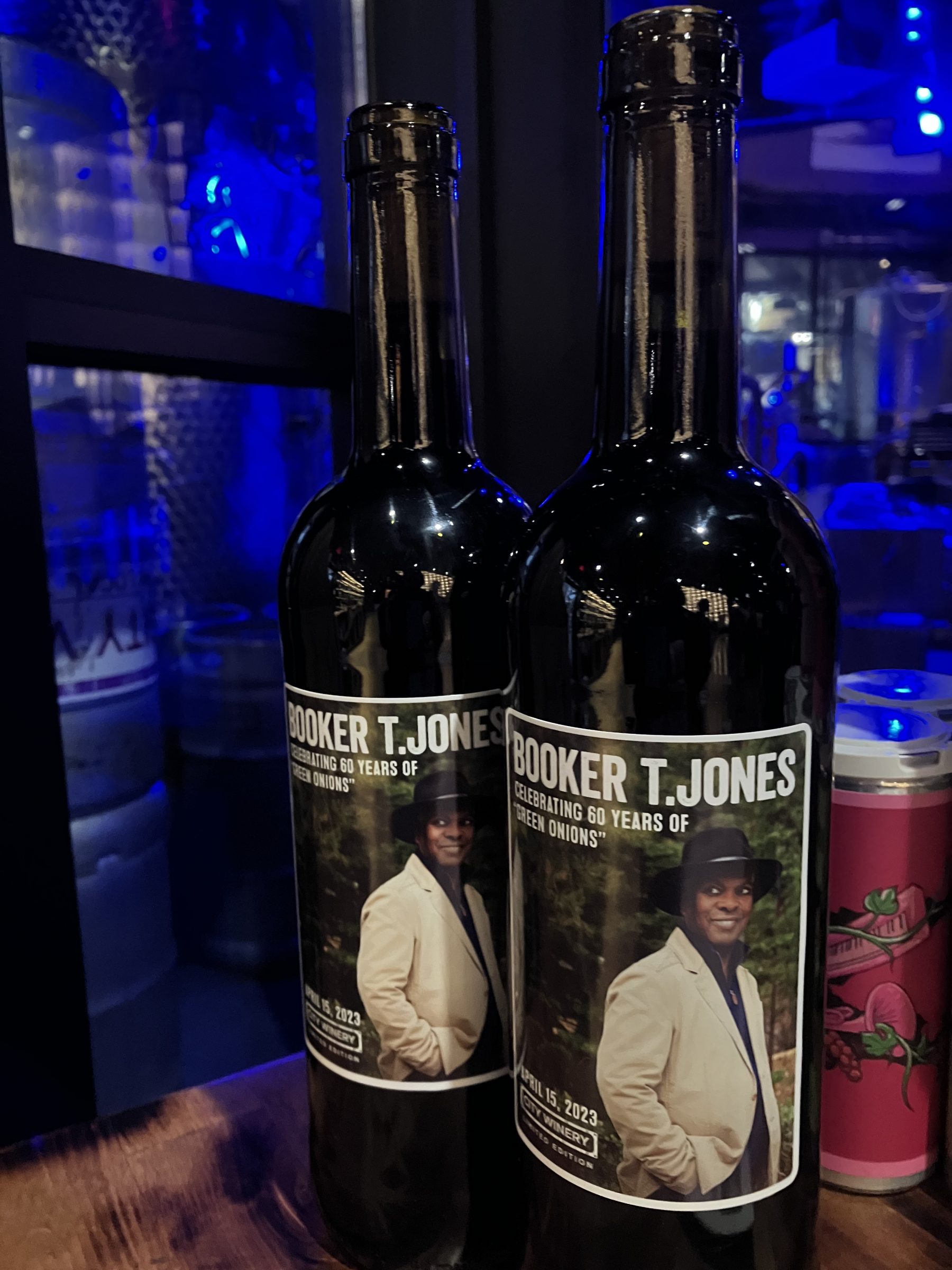In a fitting warm up to this week’s 20th Anniversary of the Stax Museum of American Soul Music (see our April 27th cover story), Booker T. Jones was on the road this month, ostensibly to celebrate the 60th Anniversary of “Green Onions,” the tune that propelled Booker T. and the MG’s and Stax Records into the national spotlight. Given that the song was recorded and released in 1962, the most chronologically appropriate homage was at the museum last September, when Jones joined the Franklin Triplets, all Stax Music Academy alumni, in what would have been the record company’s old tracking room to play a short set of MG’s classics. And indeed, nothing could have topped the magic of that moment, now available as an episode of Beale Street Caravan.
But 2023 is becoming the de facto year of tributes to the classic track, cut almost as an afterthought by the group and originally dubbed “Funky Onions” by then-bassist Lewis Steinberg, until label co-owner Estelle Axton made it more palatable by changing the first word to “Green.” It was only this February, more than 60 years on, that Rhino Records re-issued the original Green Onions LP, notably the first album ever released by Stax.

Jones himself has paid tribute to the tune this year with multiple cover versions released on streaming services, all adapting the song’s basic riff to styles as disparate as Latin rock, straight rock, and country.
And so it was that an appearance by the famed organist, composer, and producer at New York’s City Winery on April 15th was billed as “Booker T. Jones: Celebrating 60 Years of ‘Green Onions.'” What was more surprising was the venue’s release of a special wine dedicated to both the song and the show. Sales of the dedicated vintage will benefit the Stax Museum.

That night, my date and I sampled a freshly uncorked bottle as we settled into the spacious, sold-out venue and its sweeping view of the Hudson River, the dusky spires of Jersey City looming in the distance. Soon the band, sans Jones, took the stage and began playing the descending figure of “Soul Dressing,” a cut off the MG’s album of the same name. “Wow,” exclaimed a fellow patron, representative of the night’s older demographic, “it’s not every day you get to hear the MG’s!”
I refrained from correcting him, but in my mind I heard Steve Cropper’s recent quip that “if I went out with Booker now, we’d have to call it Booker T. and the MG!” Meanwhile, I was content to take in the band before us: Dylan Jones on guitar, Melvin Brown on bass, and Ty Dennis on drums. Soon Booker T. Jones himself sauntered out to the organ, looking dapper in a blue suit and flat cap, and “Soul Dressing” began in earnest.
What followed was a tight, focused journey through not only the MG’s catalog, but other Stax hits as well. The band, while missing the inimitable swing of the original Stax house band, was on point with the arrangements. Dylan Jones carried off many of Steve Cropper’s original guitar parts faithfully, though he couldn’t resist injecting a bit of shredding when he soloed at length. His work on the the MG’s “Melting Pot” was quite venturesome, but that was in keeping with the song’s original jazz-inclined aesthetic. Brown’s bass solo on the same tune also went far beyond anything the MG’s recorded, but was imaginative and soulful nonetheless. Throughout, Booker T. Jones’ playing was as funky, tasteful, and restrained as his recorded works, even when stretching out for extended soloing on “Green Onions” in the set’s midpoint. That tune, of course, elicited the evening’s most frenzied applause.
Vocalist Ayanna Irish stepped out to put across numbers more associated with female singers, such as “Gee Whiz” and “Respect,” the latter having more to do with Aretha Franklin’s cover version than the Otis Redding original, and her approach was appropriately old-school.
Booker T. Jones sang as well, and another surprise followed his brief reminiscence. “The first time I came to New York City, in 1962, I was at the Roseland Ballroom,” he said. “With Ruth Brown and Jimmy Reed.” Already holding a guitar after singing Bill Withers’ “Ain’t No Sunshine” (which he produced), he then launched into Reed’s “Bright Lights, Big City.” For a moment, you could imagine you were back home on Beale Street.
The show reached its climax with the smoldering build-up of the ostensible set-closer, “Time is Tight,” the coda of which seemed to throw the band for a loop. But as the applause died down, Jones immediately brought everyone back to Memphis. “I was standing on McLemore Avenue, and I see this guy pull up in a van from Georgia, and he starts pulling out guitar amps and suitcases and stuff and carrying them into the studio. Then he sits next to me on the organ and he wants to know if he can sing a song. And of course I say, ‘No, you can’t sing a song. You’re the valet!'” Laughter rippled through the room. “Anyway, he started singing this.” While I expected to hear “These Arms of Mine,” often associated with that story, Jones instead launched into another of Otis Redding’s great masterpieces from the early Stax era, “I’ve Been Loving You Too Long (To Stop Now).”
At the song’s end, just as we were thoroughly melted into the floor, Jones brought things squarely into the contemporary age. “This song was written by Lauryn Hill, and it’s called ‘Everything is Everything.'” The tune, its title taken from a promotional slogan used by Stax in its heyday, and recorded by Jones in collaboration with The Roots, was the perfect way to remind us that, all anniversaries notwithstanding, this was a restless, thriving artist standing before us. Long live “Green Onions,” I thought, and long live Booker T. Jones.
